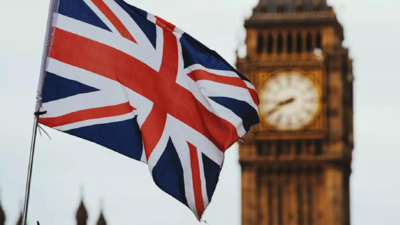Latest Education news – Board Exam Results, Admit Cards, Exam Paper Analysis and Question Papers | Times of India
A sharp and unprecedented fall in the UK’s net migration has reignited debate over the nation’s identity, economy, and political direction. New data from the Office for National Statistics (ONS) reveals that net migration dropped to 431,000 in 2024, nearly halving from 860,000 the previous year.This 49.9% decline marks the steepest annual percentage drop since the pandemic and the largest numerical fall on record.More than just numbers, this shift signals a country recalibrating its place in the world — one that is struggling to strike a balance between openness and control, growth and cohesion, pragmatism and populism.
The politics of decline
The dramatic reduction in migration follows tighter visa restrictions imposed by the former Conservative government at the start of 2024. Work and study routes were narrowed in a bid to answer mounting political pressure over immigration. Ironically, the same government was ousted shortly after, punished by an electorate that had grown weary of years of broken promises and soaring arrivals.Now under Labour leadership, Prime Minister Keir Starmer is pursuing a different path — one aimed not just at reducing migration, but integrating those who come. He warns of Britain becoming an “island of strangers” and has proposed reforms to raise English language requirements and reassess migration routes, all while refusing to set a fixed numerical target.
A legacy of migration
Migration has long played a pivotal role in Britain’s story. After the devastation of World War II, waves of newcomers arrived from across the Commonwealth to rebuild the country’s infrastructure and staff its public services. For decades, immigration was viewed through the lens of necessity, not controversy.But political tides shifted in the early 21st century. Rising immigration figures, coupled with austerity and housing shortages, transformed the issue into a flashpoint. The 2016 Brexit vote was a defining moment — a populist backlash against the European Union’s freedom of movement provisions and a wider anxiety about national control.
Populism’s political windfall
Anti-immigration sentiment continues to shape the political landscape. Reform UK, a hardline nationalist party, made significant gains in recent local elections, campaigning on claims that high immigration is eroding public services and community cohesion. Though the facts paint a more complex picture, such narratives have found traction among a public increasingly anxious about access to housing, education, and healthcare.While only around 37,000 people entered the UK through irregular means, such as Channel crossings, last year, this smaller figure continues to dominate headlines, fuelling fear and overshadowing the more substantial flows via legal channels.
War, crisis, and the humanitarian surge
The recent spike in migration numbers, especially in 2022 and 2023, was driven largely by humanitarian crises. Over 200,000 Ukrainians fleeing Russia’s invasion were granted refuge in the UK, alongside more than 150,000 Hong Kong residents under special visa schemes. These arrivals reflected the UK’s commitment to international responsibility, but also intensified public concerns over the sustainability of migration volumes.The question now is how to maintain moral leadership without overwhelming domestic systems.
Starmer’s strategy: Reform without retrenchment
Labour’s new strategy signals a shift from numerical targets to policy refinement. Starmer’s approach is focused on “smarter migration” — tightening visa rules where necessary, improving integration, and ensuring migration supports the economy. A key feature of his plan is requiring higher English proficiency across immigration routes, a move experts believe could cut arrivals by another 100,000 annually.Still, analysts warn of the risk of labour shortages in key sectors such as healthcare, hospitality, and education — areas that have long depended on overseas talent.
A nation at a crossroads
As Britain charts its future, the sharp decline in net migration offers a moment for reflection. Is the country closing its doors too quickly, or finally responding to years of unchecked growth? Can it preserve the economic benefits of migration while addressing public concerns over cohesion and service pressure?The answers will define more than immigration policy. They will shape Britain’s economic resilience, its international credibility, and its evolving sense of national identity. The migration debate is no longer a distant issue — it is now a mirror held up to the soul of the nation.
#net #migration #halves #crackdown #study #work #visas #reshapes #immigration #debate #Times #India
